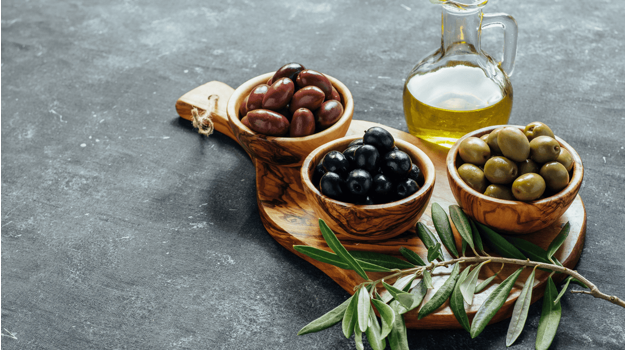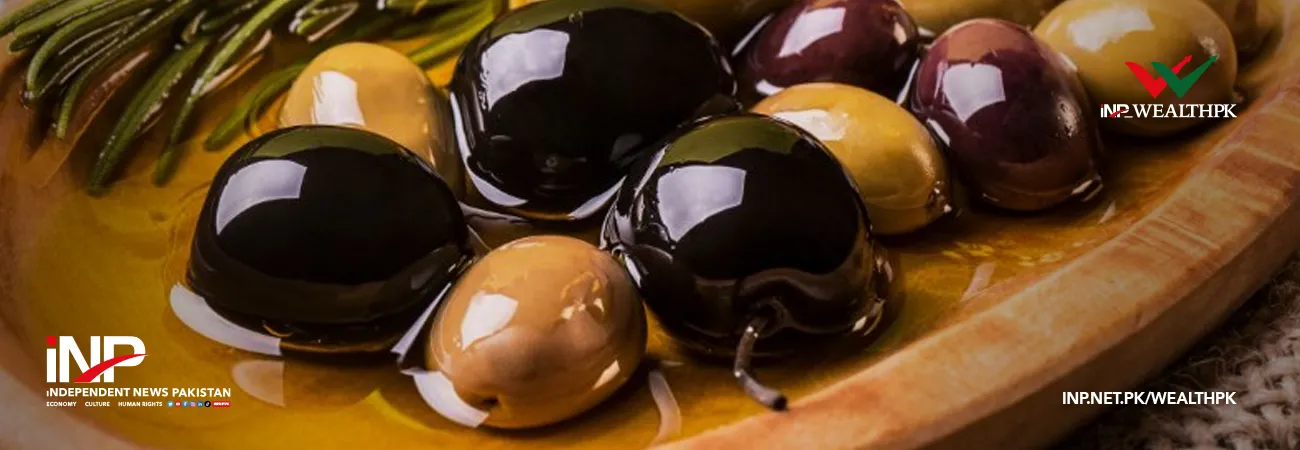INP-WealthPk
Azeem Ahmed Khan
Pakistan has successfully started producing world-class olive oil by growing olive trees in mountainous and semi-mountainous regions to reduce import bill over time, Kamran Ishaq, Deputy Director of Agriculture Extension, Zhob, Balochistan, told WealthPK.

“Pakistan can not only reduce its dependence on imported cooking oil but also export surplus olive oil to tap into the global market,” he explained. “Scientific research has shown that the climate in various regions of Khyber Pakhtunkhwa, Balochistan, and Southern Punjab is ideal for olive cultivation.” “Pakistan is now producing extra virgin olive oil of the same quality as that of Italy and Spain,” he said.
“Over 1,000 varieties of olives exist worldwide, each offering a different taste,” he added. Global demand for olive oil is rising rapidly given its health benefits, he said. “The olive oil business has become so profitable that people have dubbed it ‘liquid gold.’” In Pakistan, imports of palm, canola, sunflower, and olive oil have surged in recent years, mainly due to growing public awareness about health and heart diseases, he said.
However, local cooking oil production remains insufficient to meet national demand, leading to billions of dollars spent annually on oil imports. As a result, the government has launched multiple projects to promote olive cultivation in Pakistan. These measures include increasing the cultivation of olive, sunflower, and canola oils and improving per-acre yields, he said.
Olive oil ranks at the top of the list because olive trees can grow on all types of soils: grow in clayey, gravelly, pebbly, and sandy loam soils, he added. Pakistan’s thousands of acres of mountainous and semi-mountainous land in Punjab, Khyber Pakhtunkhwa, and Balochistan are ideal for olive cultivation, he pointed out. “Due to arid climate in Balochistan, the tree requires more water for growth than in Punjab.” Regarding olive tree characteristics, Ishaq said that olive trees can live for over 500 years.
“They start producing fruit after four years and reach full maturity after 10 years.” “On average, an olive tree yields 40 to 50kg of fruit upon maturing, which increases with the age of tree, while 14 to 20 litres of oil can be extracted from 100kg of olives,” he said. “Olives are native to the Mediterranean region. In addition to Mediterranean countries such as Italy, Greece, Spain, Portugal, Turkey, Jordan, and Tunisia, countries like Argentina, Mexico, and Australia also cultivate olives commercially,” he explained.
Ishaq mentioned that olive cultivation was introduced in Balochistan's Loralai region about 25 years ago when plants were imported from Italy and Spain. “The trials were successful, and Loralai now leads the country in olive production.” He observed: “Farmers in Zhob have shown increasing interest in olive cultivation since the agriculture department installed an oil-extracting machine about five years ago.” “Oil is extracted free of charge, though farmers are charged for petrol when power outages occur,” he added.
“Olive cultivation has benefited Balochistan’s farmers in several ways. For example, olive oil can be stored for long periods, whereas traditional crops often spoil due to lack of storage facilities,” he said. “Farmers are also earning good prices for their olive oil, with some selling it under their own labels while others sell it to companies.” “Additionally, traditional crops like grapes, almonds, figs, peaches, and plums’ trees have been increasingly affected by pests and diseases in Balochistan, reducing their lifespan.
In contrast, olive trees are resistant to diseases and pests, requiring less spending on pesticides,” he added. “Olive trees thrive in climates where winter temperatures drop to -7 degrees centigrade for short periods, and they require rainfall. However, temperatures below -9 degrees centigrade can damage the trees' leaves,” he said.
“Olive trees produce the most fruit in areas where temperatures remain between 20 and 30 degrees centigrade during flowering period,” he added. Ishaq pointed out that farmers need glass bottles, attractive packaging, and training for producing olive pickles and other by-products to add value. “They also require subsidised tools for pruning and harvesting, which they cannot afford,” he added.
Credit: INP-WealthPk




